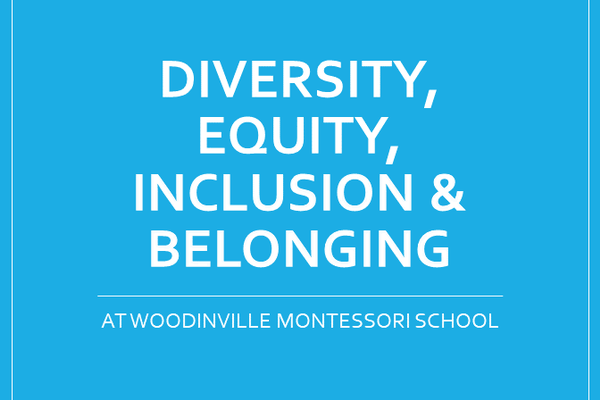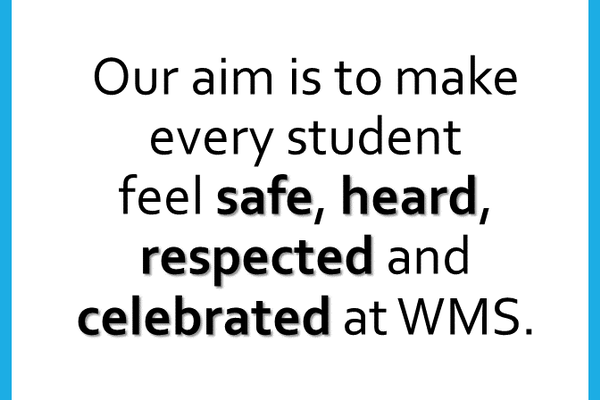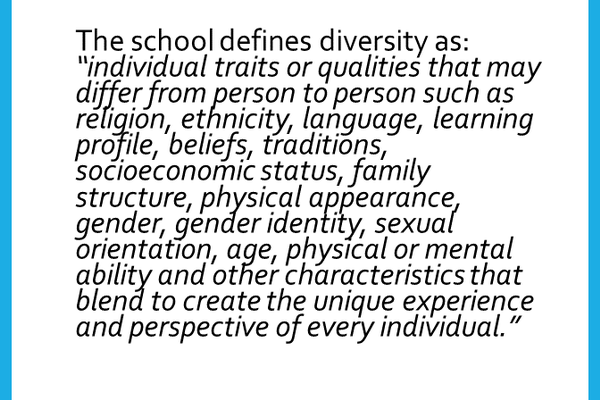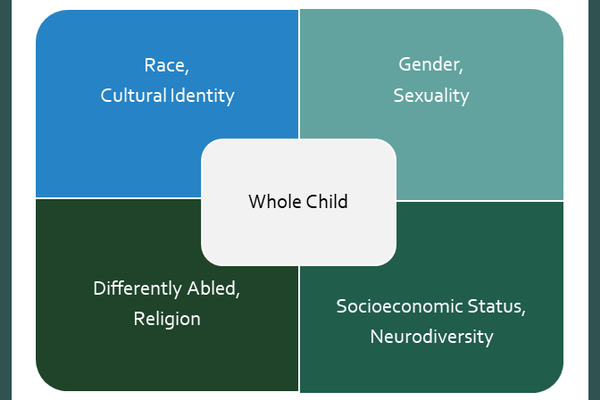 Woodinville Montessori School
Woodinville Montessori School
Our work at WMS
Montessori education is peace education, and our most fundamental value is respect for self, others, and the environment. WMS, along with our national accrediting body the American Montessori Society (AMS), realize that the scope of peace education is changing along with the changes in society. Respect for self includes all aspects of identity: race, religion, culture, gender, family structure, and all the other aspects of what makes a person unique. Respect for others includes respecting others' identities, peaceful communication, and listening to others’ perspectives. Respect for the environment also includes creating an intentional culture within our school to ensure that students feel safe to be who they are in our classrooms. We began professional development in various aspects of diversity over the last 20 years.
Cultural Diversity
The celebration of all the different cultures in our school community. This is a key aspect of Montessori education. Families are invited to celebrate their cultural holidays with the school. The foundational lesson on the fundamental needs of humans in Elementary is the lens through which many aspects of culture are studied. In 2006, we began celebrating Festivals of Light at the school so that we could learn about all the winter holidays from around the world, including how Christmas is celebrated in many other countries. In 2014, the Family Alliance began celebrating many cultural holidays with all-school Lunar New Year and Ramadan events, and inviting families to share with classrooms how they celebrate holidays such as Hanukah, Nowruz, Diwali, and more.
Neurodiversity
The idea that all students’ brains work differently, and that the uniqueness of the individual’s learning profile adds to the richness of the classroom community. We are doing ongoing work in this area as new strategies are developed and more brain research is available that we can share with students so that they can advocate for themselves. In the 2007-2008 school year, we completed the All Kinds of Mind Training. Over the course of five full days, our faculty learned that each student’s unique learning profile consists of strengths, weaknesses, and affinities and that students can learn to leverage their strengths and affinities to overcome their weaknesses. In the 2012-2013 school year, faculty took the Montessori Applied to Children At Risk (MACAR) training. This is skill-based training to help students with some learning differences and was offered to faculty who were interested. In 2014, a speaker from the Hallowell-Todaro Center did a workshop for all faculty about how to work with students who have executive functioning challenges. We now plan to do at least an hour of professional development yearly on neurodiversity in classrooms.
Economic Diversity
Historically, WMS kept its tuition low so that it was affordable to more families. When it became clear that it was not possible to continue that model and pay staff what they deserve, WMS committed to funding Tuition Assistance for students in need. It was a strategic goal in our very first strategic plan. Now, we dedicate 10% of gross tuition income to families in need.
Gender & Sexuality Diversity
We began this journey to support a community member making a transition. Shortly after, some students demanded that we educate ourselves on this topic so that we could meet their needs, or their friends’ needs, and create a classroom environment where they felt included and respected. We realized that we needed more education to better support our students and community. In 2017, we sent students to participate in a student diversity workshop hosted by the Northwest Association of Independent Schools (NWAIS, one of our accrediting bodies). In 2019, psychologist and speaker Jennifer Bryan did a two-day workshop on Gender and Sexuality Diversity. She was scheduled to do a family education piece in April of 2020, but we had to cancel because of the pandemic. Our work on identity is intended to give voice to students to express themselves in a safe classroom environment.
Race & Social Justice
Montessori education with its emphasis on social responsibility has been at the forefront of educating students about social justice issues. For many years now, students in high school have researched the impact of superfund sites on marginalized communities, and other topics like race and the prison system, etc. However, post-George Floyd’s death and with the Black Lives Matter movement, AMS invited all member schools to better educate themselves on issues like discrimination and systemic racism. They offered Anti-Bias and Anti-Racism education training for faculty, and some of our faculty have completed the training. We are in the process of examining all the existing systems at our school to ensure that we are not unintentionally or unconsciously discriminating against communities.



